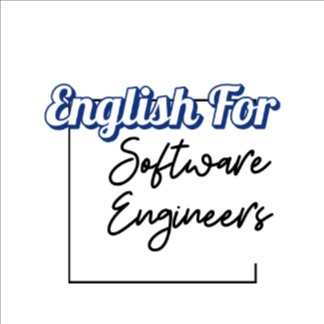
Master the most common interview questions with professional phrases and confident responses that will make you stand out
Common fresher interview questions with proven responses
Sentence starters and expressions that impress
How to effectively showcase your technical work
Professional email templates and best practices
Master these essential questions with professional responses that showcase your technical skills and communication abilities
Your passion for tech, relevant skills, what you're looking to learn, and how you can contribute to the team
"I'm a recent graduate with a strong passion for [area] and hands-on experience in..."
"During my studies, I developed expertise in [X, Y] and I'm eager to apply these skills in..."
"What excites me most about software engineering is the opportunity to solve complex problems and..."
"I'm passionate about solving complex problems through code and seeing the immediate impact of my work..."
"I enjoy the logical thinking and creativity that programming requires, plus the continuous learning opportunities..."
"The opportunity to build solutions that can improve people's lives and scale to help millions motivates me..."
Follow this proven framework to present your projects in a compelling and professional manner
"The challenge was to create a system that could handle [specific requirement]..."
"I developed and implemented a solution using [technologies] that..."
"My specific role involved [responsibility] and collaborating with..."
"As a result, we achieved/improved/reduced [quantifiable outcome]..."
"I'm particularly strong at problem-solving and debugging - I enjoy breaking down complex issues..."
"I have a keen attention to detail which helps me write clean, maintainable code..."
"I'm a quick learner and adapt well to new technologies and frameworks..."
"I sometimes spend too much time perfecting my code, but I'm learning to balance quality with deadlines..."
"I'm still developing my skills in [specific area], which is why I'm excited about this opportunity to learn..."
"I tend to be overly critical of my own work, but I'm working on building more confidence..."
"I see myself as a skilled developer who has contributed to meaningful projects..."
"I'd like to have deep expertise in [specific technology/area]..."
"I hope to be mentoring junior developers and leading technical initiatives..."
"I'm impressed by your company's commitment to innovation..."
"The opportunity to work with [specific technology/team] aligns perfectly..."
"Your company's culture of learning and growth appeals to me..."
"I have hands-on experience with [languages/frameworks]..."
"I'm proficient in [core technologies] and familiar with [additional tools]..."
"I've worked on projects using [specific tech stack]..."
"I start by reproducing the issue and understanding the root cause..."
"I use debugging tools and systematic testing to isolate problems..."
"If I'm stuck, I research online or ask for guidance..."
Always have thoughtful questions ready - it shows your genuine interest and preparation!
"What does a typical day look like for someone in this role?"
"What learning opportunities are available for junior developers?"
"What are the biggest technical challenges the team is currently facing?"
"How do you measure success in this position?"
Learn the essential action verbs and project description framework that will make your technical work shine
"The challenge was to create/solve/address [specific problem or requirement]..."
"I developed/implemented a [type of solution] using [technologies] that..."
"My specific responsibilities included [detailed role and contributions]..."
"I used [specific technologies/methods] to overcome challenges such as..."
"As a result, we achieved/improved/reduced [quantifiable results and impact]..."
Master the art of professional follow-up communication and make a lasting positive impression
"Could you please clarify what you mean by...?"
"I want to make sure I understand correctly. Are you asking about...?"
"Could you elaborate on that point?"
"That's a great question. Let me think about that for a moment..."
"I'd like to consider the best approach to this..."
"Give me a second to organize my thoughts..."
"Thank you for taking the time..."
"I enjoyed our conversation about..."
"I'm excited about the opportunity..."
"I'm confident that my skills..."
"If you need any additional information..."
"I look forward to hearing..."
Send within 24 hours for maximum impact
Subject Line:
Thank you for the interview - [Your Name]
Dear [Interviewer's Name],
Thank you for taking the time to interview me for the [Position Title] role at [Company Name]. I enjoyed our conversation about [specific topic discussed] and learning more about [something specific about the role/company].
Our discussion about [specific project/challenge mentioned] particularly excited me, and I'm confident that my skills in [relevant skills] would allow me to contribute effectively to your team.
If you need any additional information from me, please don't hesitate to reach out. I look forward to hearing about the next steps in the process.
Thank you again for your time and consideration.
Best regards,
[Your Name]
Send within 24 hours of the interview
Reference specific conversation points
Keep it concise (under 150 words)
Proofread carefully before sending
Join our WhatsApp channel for daily interview phrases, practice questions, real-world examples, and exclusive career tips from industry experts!
Join WhatsApp ChannelFind answers to the most common questions about software engineering interviews and how to prepare for them
The most common phrases include: 'I have experience with...', 'My approach to problem-solving involves...', 'I collaborated with a team to...', 'One challenge I faced was...', and 'I'm familiar with this technology, but I'm always eager to learn more.'
Start with a simple overview, use analogies that non-technical people can understand, build complexity gradually, avoid jargon unless necessary, and conclude with practical applications or benefits of the concept.
It's best to be honest but constructive. Say something like: 'I haven't worked directly with that technology, but here's how I would approach learning about it' or 'While I'm not familiar with that specific concept, I have experience with similar systems like...'.
Use a structured approach: 'First, I analyze the requirements thoroughly. Then, I break down the problem into smaller components. Next, I consider various solutions and evaluate trade-offs. Finally, I implement the best approach and validate the results through testing.'